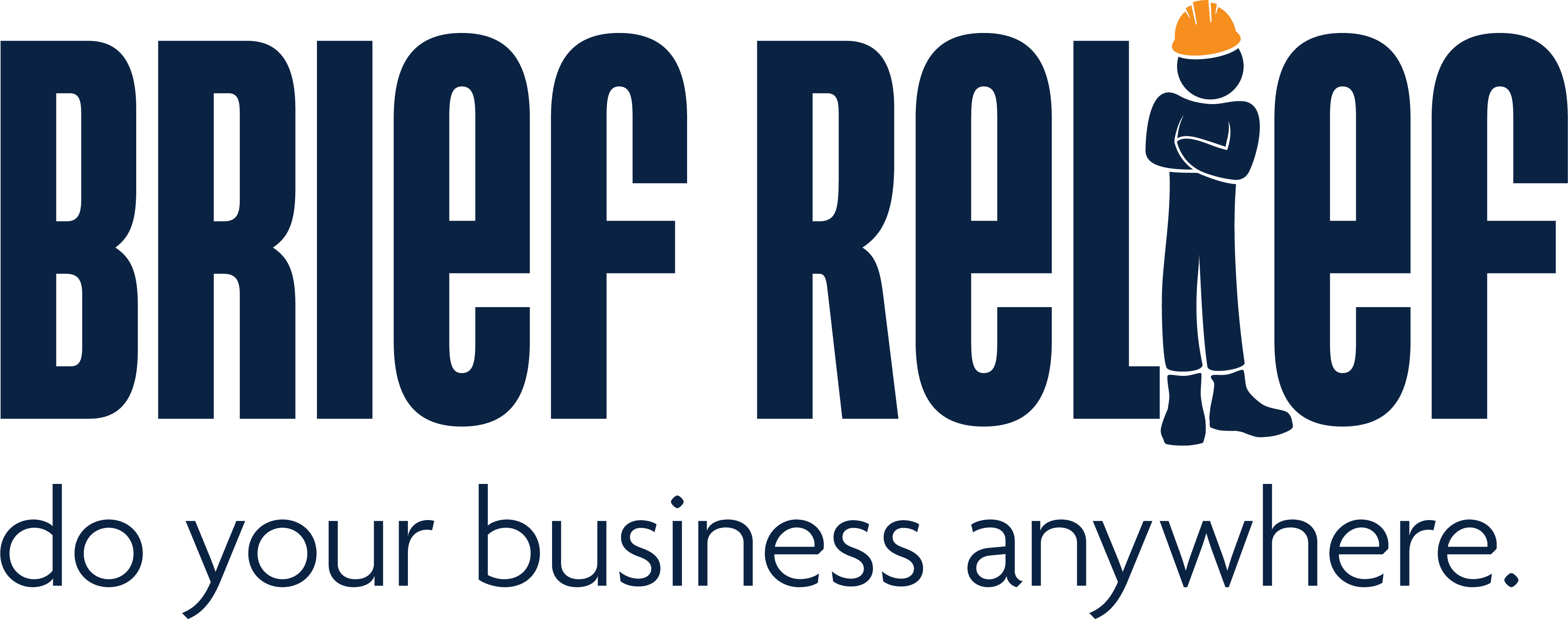Latest News
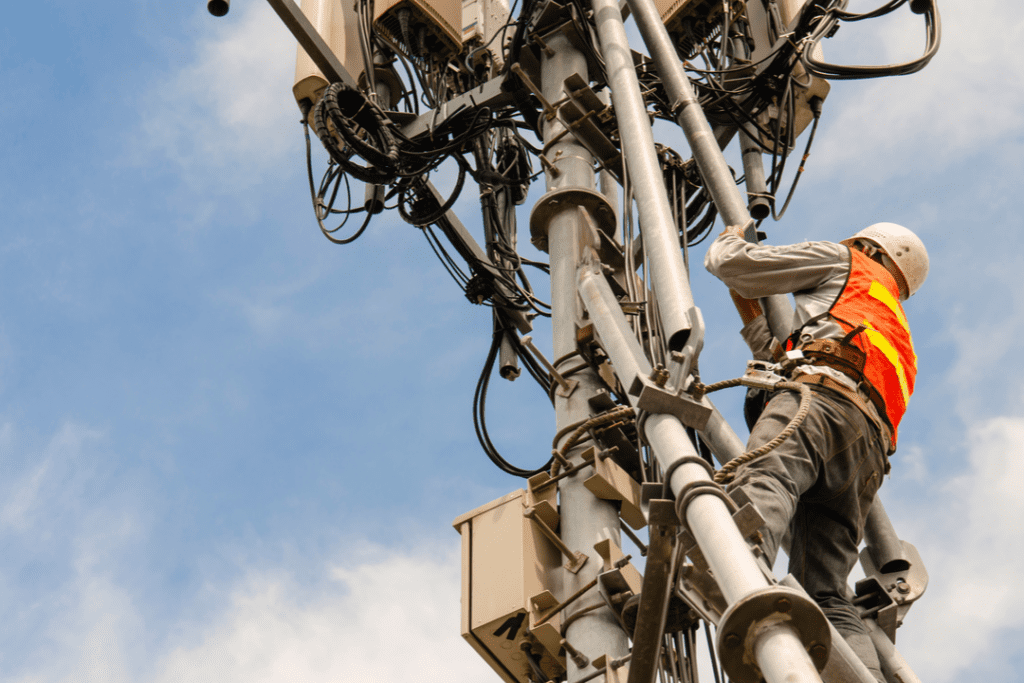
Long hours stuck in traffic. Endless drives to construction sites. Long, laborious hours installing new lines at remote utility service locations. While these typical stomping grounds of a telecom worker are fine and dandy, where’s one to take a whiz when needed?
Seems a bit dirty to admit, but indoor plumbing is a luxury everyone takes for granted. The tough reality of a telecom worker’s day-to-day life is that toilets are few and far between.
But did you know while an onsite porta-potty is the industry standard, those who pack portable toilets on the job are actually doing their employers (and the environment) a favor?
Here’s why.
Portable toilets are environmentally friendly
Yes, our dear Mother Earth. We often forget about her … sadly. But using portable toilets is very easy on her — once you crunch some numbers.
Your standard toilet takes 1.28 gallons per flush. Multiply that by the number of bathroom runs and number of employees, and you get a lot of excess water usage from people simply minding their business.
A wonderful thing about portable toilet systems is that they don’t take vast amounts of water to operate (or any at all!). Using them also ensures proper waste disposal.
Portable toilets save money and time
Have you ever stopped to think about all the time invested in multiple bathroom breaks? And how that poorly invested time is taking a chunk out of your bottom line? (This is especially true if reaching an acceptable toilet requires traveling.)
As we detailed in our blog The Real Cost of Employee Bathroom Breaks, if a worker had to make a bathroom run three times a day, that’s an hour per day. Per week, that’s five hours lost to restroom breaks. And if the average wage of a telecommunications technician is $22.95 per hour, you’re losing approximately $5,738 a year due to toilet visits (assuming your employees work 50 weeks a year) for just one employee.
When you consider the “rolling costs,” (using a company vehicle to travel to a bathroom, the gas used, the extra mileage that adds to maintenance costs, etc.), the hourly cost can easily jump to an average of $150/hour, or $37,500 a year. Now, multiply that by the number of employees working in remote locations.
(If these numbers make you wince, maybe don’t check Brief Relief’s savings calculator to see how portable toilets can not only boost your bottom line, but also employee productivity, worker morale, and business reputation.)
Portable toilets save your reputation
We’re sure you’ve heard of indecent exposure and know the risks of revealing one’s genitals under circumstances that are likely to offend others.
And public urination and defecation citations leave a lasting stain on a company’s image. (Defecation defamation, anyone? Not to mention a hefty fine for your company … Wanna be in charge of explaining that to your board this quarter? Didn’t think so.)
Don’t risk your employees getting caught on camera — or worse, blown up on social media. Look for a portable toilet solution that protects the environment, and your time, money and reputation.
In short, portable toilets like Brief Relief are a clear answer
When telecom utility workers are on-location and don’t have access to a running toilet, a privacy tent, portable commode, and waste bags are all they need when the urgency arises.
Introducing, Brief Relief!
The Brief Relief Lavatory System comes with a privacy shelter, commode, full-sized seat, and supply of Disposa-John waste bags. In other words, it’s a complete personal bathroom at any worksite.
How does it work? We’re glad you asked!
Once the privacy shelter is set up, the worker places the commode inside and lines it with a Disposa-John waste bag. In the act, the compounds inside the waste bag convert liquid and solid wastes into an odorless, deodorized gel. When done, one simply removes the waste bag and seals it closed.
And because Brief Relief waste bags are non-toxic and landfill-safe, you can throw them away in any regular trash can. Plus, they’re water-repellant, non-conductive, and fire retardant, meeting CPAI-84 standards.
Storage is effortless as well. Workers can set up the Brief Relief Lavatory System and fold it away in a carry case in a matter of minutes.
No more smelly porta-potties. No more hours of wasted time and money trying to get to and from the restroom sites. No more privacy issues. We’ve packed up all the common portable toilet problems and solved them with one solution: the Brief Relief Lavatory System. (You’re welcome!)
Sound like your cup of tea? To see the complete line of Brief Relief products for your workers, visit our shop.
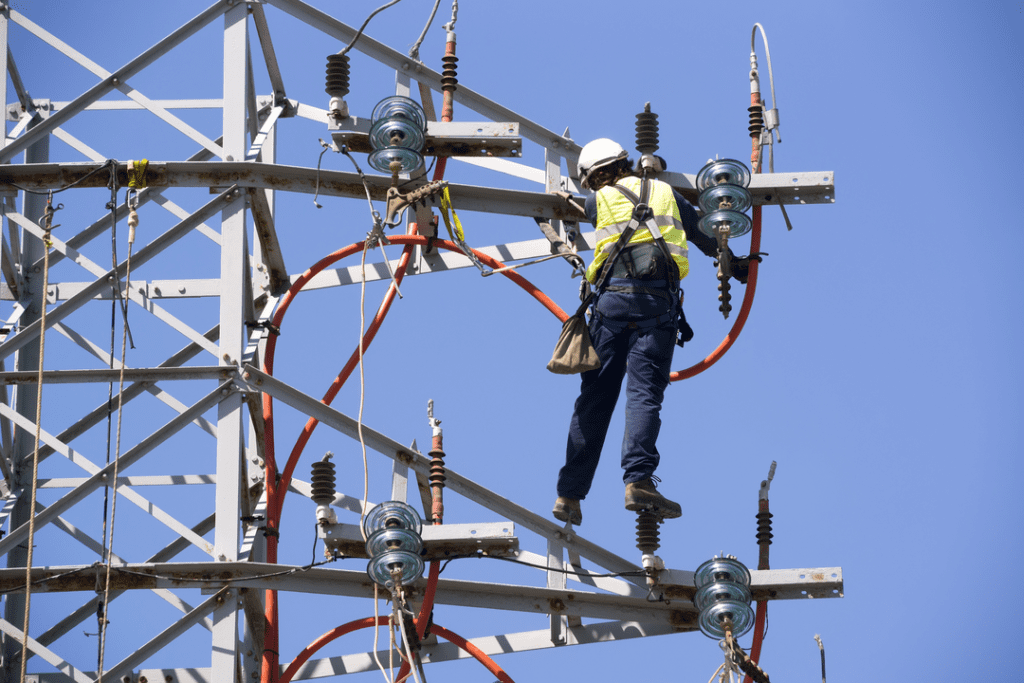
Bathroom breaks. The dirty, little secret no one likes to talk about that’s costing companies LOADS of money.
Make a stink and require employees to punch out to use the restroom, and you could get a hefty fine. Do nothing about bathroom breaks, and you’ll silently rack up thousands upon thousands of dollars in lost time from your employees doing their doo…duty.
And don’t get us started on the hassle of fulfilling workplace sanitation requirements while making sure you don’t break indecent exposure laws.
It’s enough to give any company leader a headache. (Defecation defamation, anyone?)
To keep your workforce happy and reputation clean, you need to find a solution that solves the cost of bathroom breaks without sacrificing your employee performance and morale.
We have the perfect solution.
Let us break down the real cost of employee bathroom breaks and show you a way to improve the restroom experience no matter where your workers are.
Breaking Down the Cost of Bathroom Breaks
Imagine you manage the workforce of a communications technology company. Your workers climb hundreds of feet each day to inspect tower exteriors, repair equipment, collect data, and perform routine maintenance.
The only way up and down the tower is by a vertical metal ladder. And of course, there’s no porta-potty or bathroom in the tower.
When nature calls, workers have to descend to reach a porta-potty (or worse, a tree), take time to do their business, and then climb back up a few hundred feet to resume working.
A free climb can take 10 minutes. The descent can be quicker and take as little as five minutes, and the bathroom break another five to 10 minutes. To make numbers easy, let’s say that’s 20 minutes in total per bathroom break.
If a worker had to make a bathroom run three times a day, that’s an hour per day, or five hours per week lost to restroom breaks. And if the average wage of a telecommunications technician is $22.95 per hour, you’re losing approximately $5,738 a year due to toilet visits (assuming your employees work 50 weeks a year).
… And that’s just in employee wages.
You also have to consider the “rolling costs.” Do employees have to use a company vehicle to travel to a bathroom? How much gas is that using for every trip? How many extra miles is that putting on the vehicle adding to maintenance costs? When you consider all those related expenses, the hourly cost can easily jump to an average of $150/hour, or $37,500 a year!
So, how can you cut costs without soiling your company’s image? First, we’ll tell you how NOT to do it.
The Risks of Cutting Corners to Save Costs on Bathroom Breaks
There are a couple ways to cut corners on bathroom breaks, but both come with repercussions.
You Could Violate Workplace Sanitation Requirements
According to OSHA, employers must “avoid imposing unreasonable restrictions on restroom use.” Taking this into account, encouraging employees to speed things up when relieving themselves is an OSHA violation.
Limiting bathroom breaks – even if “inadvertently” due to extreme productivity quotas – could also lead to negative public backlash if word got out. (We all saw what happened with Amazon’s overworked delivery drivers.)
Your Employees Could Violate Indecent Exposure Laws
Asking workers to pop a squat 400 feet above the ground or doing so once they reach the worksite (if there’s no porta-potty) is a big no-no.
Not only are bathroom breaks meant to be private and mirror the same “at home” experience, but revealing one’s genitals under circumstances that are likely to offend others is considered indecent exposure. Indecent exposure is considered a misdemeanor in most states, and fined accordingly.
And aside from violating the law, you run the risk of someone seeing them pop a squat and complaining about it—or worse, blasting photos on social media. (And let’s not forget on-site security cameras, too.)
The Ultimate Bathroom Break Solution
No matter your employees’ work situation – atop a 30-story steel structure, in the remote wilderness, or stuck in a vehicle for hours on end – you need a bathroom break solution that’s private, safe, and compliant.
That’s why we developed the Brief Relief Liquid Waste Bag.
Our waste bags are spill-proof, compact, and convenient. They have a triple barrier to lock in waste, making them odorless and puncture-proof, and can be thrown away in a regular garbage bag.
Don’t have somewhere private where employees can use the waste bags? No problem!
Brief Relief’s Liquid Waste Bags can be easily paired with commode systems and portable shelters for ultimate privacy and comfort. From travel systems and curtains to canopies and private shelters, we can find the perfect solution for your specific bathroom break needs.
Check out Brief Relief’s savings calculator to see how our products can assist your organization in saving time and money while simultaneously increasing employee productivity, improving worker morale, and keeping your reputation clean.
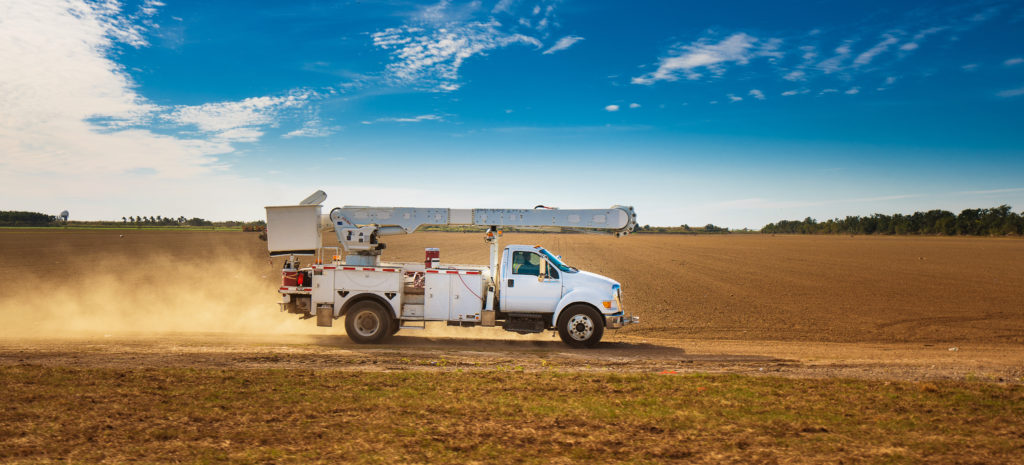
[vc_row][vc_column][vc_column_text]
When You Are on the Go
Due to long shifts and inaccessibility to consistent or private restrooms, bathroom breaks can become complicated. Unfortunately, Field Service Crews and long-distance drivers face this problem daily. Bin Door Buddy privacy curtain is great for utility and construction workers, first responders, and outdoor professionals who need a private area for an emergency restroom or changing.
Reliving yourself outside may not always be the best option, but sometimes it is the only option if you really have to go. Going outside without any kind of privacy can be embarrassing and attract unwanted attention from other travelers. This is where Bin Door Buddy comes in, providing a private area anytime, anywhere.[/vc_column_text][/vc_column][/vc_row][vc_row][vc_column][vc_row_inner][vc_column_inner width=”1/2″][vc_single_image image=”4938″ img_size=”large”][/vc_column_inner][vc_column_inner width=”1/2″][vc_column_text]
A Better Solution
Introducing Bin Door Buddy: a portable, multi-purpose privacy curtain that may be used alongside your truck’s bin door to create an instant private area. This product can be used in conjunction with Brief Relief Liquid Waste Bags, creating a convenient and trouble-free restroom on the go.[/vc_column_text][vc_column_text]Magnets are placed in each corner of the product for easy attachment to the side of your truck. If there are no magnetic surfaces available, Bin Door Buddy comes with grommets in the corners to hang by rope or bungee cord. It can also be folded up and stored in compact spaces, conveniently allowing it to fit in most SUVs, cars, and trucks.[/vc_column_text][vc_column_text]Made from high density opaque nylon, there is no need to worry about being seen by others. Bin Door Buddy is also durable and water resistant. Because of this, it can be easily sanitized and cleaned.[/vc_column_text][/vc_column_inner][/vc_row_inner][vc_column_text]
Why Bin Door Buddy?
When it comes to portable, sanitary privacy shields, there is no other product on the market like the Bin Door Buddy. No longer will you have to deal with hiding behind the car door or a makeshift cover when nature calls, hoping you’re not in full view to the public. No matter where or when, the Bin Door Buddy is ready when you are![/vc_column_text][/vc_column][/vc_row]
[vc_row][vc_column][vc_column_text]Each year, tropical storm systems and hurricanes leave homeowners and their families struggling for basic necessities. As a first responder or on-call emergency restoration specialist, being equipped with the right tools is critical to keep you, your team, and those being rescued. However, there is one thing that is overlooked. If you have to go to the bathroom, where do you go? If plumbing is out and people’s homes are flooded, you are left in a tricky situation. This is where Brief Relief products can help you and those effected by the storm!
Staying Prepared with Brief Relief
During periods of utility damage or plumbing inoperability, providing customers with a portable restroom supports greater health, comfort, and peace of mind. With portable commodes, waste bags, privacy curtains, and more, Brief Relief products are ideal for hurricane preparedness and confer three key advantages, including:[/vc_column_text][vc_column_text]
1. Health & Sanitation
Whether your clients secured their plumbing systems in preparation for the storm or do not have accessible bathrooms in the hurricane’s aftermath, Brief Relief’s waste bags alleviate the risk of spreading contaminants, viruses, bacteria, and potential disease.
2. Comfort & Privacy
In the wake of a storm, temporary public restroom stations and trailers are oftentimes provided to service the community. At the same time, these solutions can be cumbersome to access, unsanitary, or unavailable before or during the storm. Brief Relief’s commode systems and privacy curtain, the Bin Door Buddy, create sanitary portable bathrooms where and when your team need it most.
3. Easy Storage
When customers allow waste to accumulate in an inoperable household toilet or bucket, the conditions quickly become nauseating and unsanitary. Both our liquid and solid waste bags are puncture proof, odorless, and compact. They can be stored somewhere until you find a safe place to dispose of them, keeping you, your staff, and others safe from bacteria.[/vc_column_text][vc_column_text]
Be Prepared and Stay Prepared
Brief Relief portable lavatory systems are a safe, convenient, and sanitary way to keep first responders prepared for a post tropical storm, hurricane, or disaster scene. In addition, it’s a great supply to have in your family’s personal hurricane preparedness kit. Each travel toilet, waste bag, and restroom kit is a key addition to any disaster kit.[/vc_column_text][/vc_column][/vc_row]
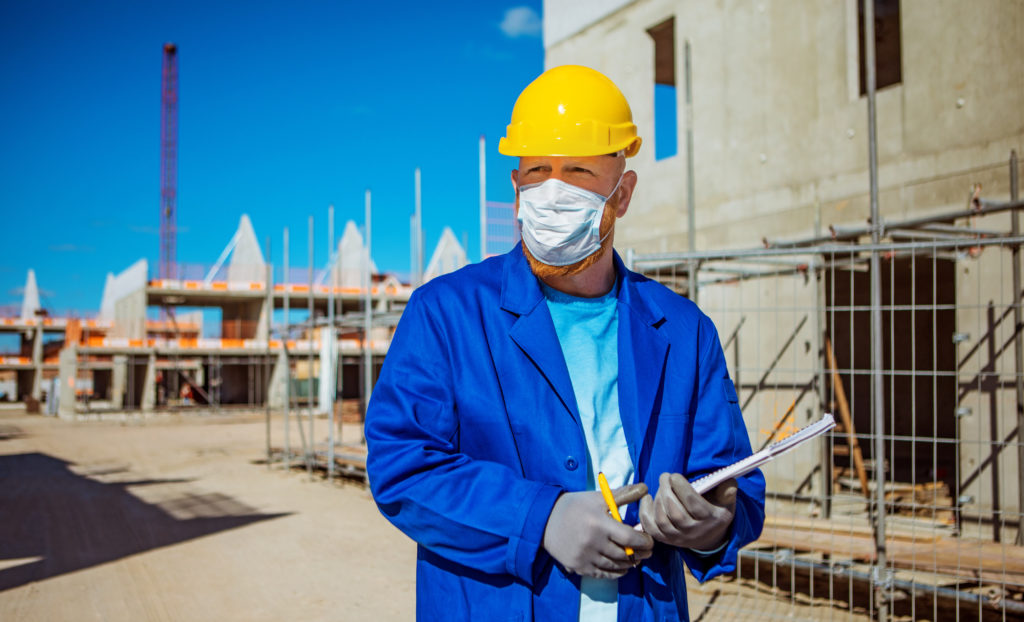
[vc_row][vc_column][vc_column_text]
2020 Double Whammy
As temperatures drop, COVID-19 and flu cases push the limits of what our healthcare system can handle. We do not yet know how influenza (the seasonal flu) and COVID-19 will interact with each other. The best thing you can do is create a work environment that spreads neither.
Good News? The same proactive steps that prevent COVID-19 from spreading also prevent influenza from spreading. That means that if you already have precautions in place, you will see fewer occurrences of both viruses.
Bad News? Not everyone is following the CDC guidelines.
What can you do as a team leader and business owner in your community? You can help prevent the spread of airborne germs in the workplace.
There is more, though. Leadership isn’t just about providing equipment to your employees and expecting them to use it. It is also about setting the expectation that they follow through to keep their fellow employees and customers safe.[/vc_column_text][vc_column_text]
Encourage Hand Washing
Both COVID-19 and the flu last longer on surfaces under colder temperatures. Hands touching things can quickly become a danger to your employees and customers.
So how do you the community that you’re taking this seriously? First, have hand sanitizer visible. Placing hand sanitizer stations by the entrance will set the expectation that it should be used. Placing bottles outside restrooms and, if applicable, at the register will also help remind customers that it is not just themselves that they are put at risk.
Another suggestion is to put 20 seconds of a song’s lyrics, laminated, above the sinks in your restrooms. Encourage people to sing it while scrubbing[/vc_column_text][vc_column_text]
Provide Face Shields
If your staff work in pairs outside, it doesn’t matter how many times you tell them not to share tools…they are going to share tools.
If you are a first responder, you will come into close contact with other people. The size of the group doesn’t matter. If you work in a restaurant, there is no working from home.
So what are you going to do to protect your team? Face masks are great for preventing YOU from spreading viruses to other people.
Face shields protect you from other people who cannot bring themselves to:
- Wash their hands
- Cover their mouths when sneezing or coughing
- Stay away from large groups of people
Your business needs to stay open; your employees have to be onsite for you to operate. Do the best you can for your employees and get them to face shields to protect them from the Flu and COVID-19.
Brief Relief Face Shields add a better layer of protection for your employees. Some of the features include:
- Shield tilts for versatile use
- Adjustable strap
- Lightweight
- Comfortable to wear for long periods
- Covers your entire face
- Soft foam padding provides additional ventilation and reduces fogging
- Reusable
- Made from durable PETG, which is mentioned as one of the best materials for face shields by the FDA
By following these guidelines and safety measures, employees and staff will have the highest set of standards and criteria to prevent germs in the workplace.
[/vc_column_text][/vc_column][/vc_row]
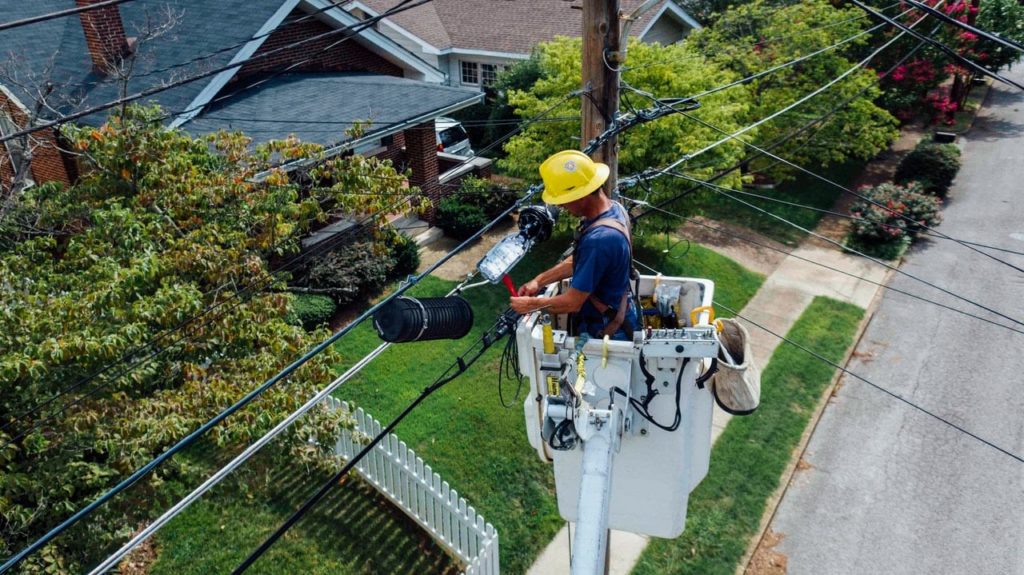
[vc_row][vc_column][vc_column_text]Months into the pandemic and the coronavirus is still spreading.
Public health authorities, including the World Health Organization (WHO) and the Centers for Disease Control and Prevention (CDC), instruct us to remain six feet apart or more, wash our hands regularly, disinfect frequently touched surfaces, and wear protective face gear. But compliance with these measures, especially face masks, is mixed. Daily we hear of instances where people do not know they were infected. We hear about superspreading events, where one person infects many. Salons in some cities are closed, but gyms and indoor dining at restaurants have partially reopened. People are confused. Businesses need answers.
A clear understanding of how COVID-19 is transmitted is needed to ensure people best protect themselves. It will also guide companies in instituting the best safety protocols.
Although much remains unknown about COVID-19, scientists have established that the coronavirus is transmitted via air and highly contagious. Research suggests that the virus primarily spreads when infected people talk, sing, cough, or sneeze. These actions expel respiratory droplets containing particles of coronavirus combined with saliva and mucus. If these droplets are inhaled by others nearby, they could transmit the coronavirus.
Yet, wearing a face mask does not fully protect wearers from airborne droplets. Face shields do.[/vc_column_text][vc_column_text]
Why Face Shields Work
Face shields protect the wearer’s eyes from aerosol particles. If someone is only wearing a face mask, their eyes are fully exposed to the open air.
Face shields protect the wearer from touching their face. By touching the front of your mask, you might also infect yourself. Experts tell us not to touch the front of your mask while you’re wearing it. After taking your mask off, it’s still not safe to touch the front of it. Once you’ve washed the mask (in a washing machine), it is safe to wear it again.[/vc_column_text][vc_column_text]
Cable and Utility Workers Need Face Shields
Restaurant and retail employees are obvious customer-facing employees and you may have noticed that many of them are incorporating face shields into their standard PPE wear, but a whole sector is missing from this idea of customer-facing service providers.
Plumbers, electricians, gas, cable, HVAC, handymen – Anyone who has to enter the home of a customer needs to be wearing a face shield, to protect themselves and to protect the customer.
Customers are concerned more than ever about letting people from outside their family onto the property or into their homes. If your employee is not wearing what a cautious customer considers enough PPE, they could deny them access. That in turn means that you have to reschedule the appointment, creating a service back up.
These in-home service providers are also nervous about entering a home. What if the homeowner or tenant chooses not to wear a mask or refuses to in their own home? That conversation is not going to go well, and it could put your employees at risk as well as the reputation of the company if things get heated.[/vc_column_text][vc_column_text]
Give Customer-Facing Employees Optimal Protection
Give your employees everything they need to protect themselves and the public. This assures the customers, clients, and patrons that your company cares about their health and employees.
Face Shield Features:
- Customizable – Your business name and logo across the front
- Deluxe Shields Tilt – Easy to eat, adjust glasses, etc.
- Medical Grade – Designed to prevent the spread of infectious diseases
- Reusable & Durable – PETG durable plastic
- Easy to Clean – You can use household cleaners or agents to disinfect
- Long-Wear Comfort – Thick foam headband, designed for long surgeries–comfortable even after an 8-hour shift
Unlike a mask, communication is more straightforward, you can see people’s expressions and conversion is less muffled.
At Brief Relief, we provide unique products to ensure the safety and productivity of your work crews. With our experience working with utilities, construction, military, police, fire, and medical professionals, we worked alongside experienced engineers to design a line of Face Shields for most situations. Our deluxe line is perfect for businesses that want to maximize corporate branding. The industrial line is made for rugged work environments, including construction site and offsite utility workers, and the standard shield is best for larger workforces.
Don’t worry; we have stock. So whether you have ten employees or 100, we have you and your eyes covered. Need a customized quote? No problem! Give us a call or email us at [email protected].[/vc_column_text][/vc_column][/vc_row]
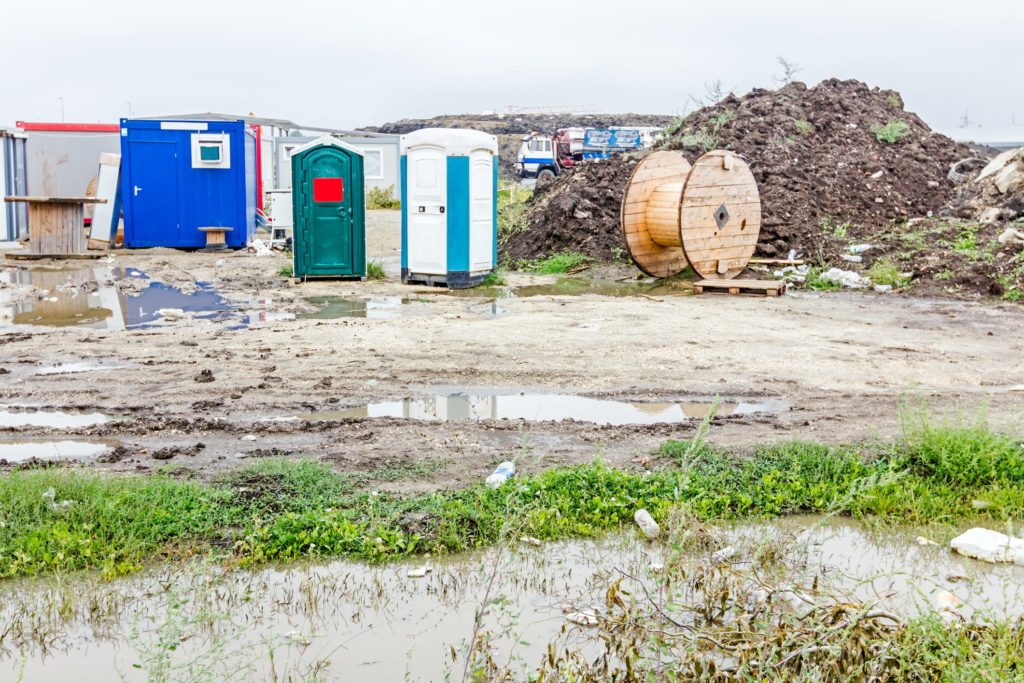
[vc_row][vc_column][vc_column_text]Most companies do their best to ensure that remote teams have the best protection. Not just because they have OSHA compliance issues, but because they want to keep employees safe and productive.
Have you overlooked your sanitation safety requirements from OSHA? You might be out of compliance, exposing your company to unnecessary risk.
OSHA Requirements
Some of your workforce may not work in a traditional office setting. Instead, they’re on worksites or in their vehicles. Providing OSHA standard bathroom facilities looks a little different for them.
To keep your company OSHA compliant and your mobile team of linesmen, technicians, and engineers healthy, you must provide “adequate access,” meaning you have to supply them with bathroom services in 10 minutes or less.[/vc_column_text][vc_column_text]
Leaving it up to the Employees Leaves the Company at Risk
It is a threat to expect your employees to make the right choice and protect your company from embarrassing situations.
Right now, Amazon is facing a lot of scrutiny in the UK due to:
- Bathrooms located too far from workstations
- 74% of employees report avoiding using the toilet out of fear of losing their jobs due to missed performance targets
- Bottles of urine found in the warehouse
In Levittown, NY, a Long Island Power Authority employee was caught on a security camera urinating on a customer’s fence and house.
What about putting the general public at risk, not just private property? In California, a water manager with the water bureau urinated into an empty reservoir. You would think that a manager would have the common sense to know that even an empty reservoir is a lousy judgment call for a safe place to answer the call of nature. Leaving workers to figure out where to take a bathroom break can put a company’s reputation on the Line.
These incidents, which are not isolated, deteriorate a company’s credibility and reputation.[/vc_column_text][vc_column_text]
Standard Solutions Fall Short Protecting Your Remote Workforce
Portable toilets are ubiquitous on construction sites, and they are also hotbeds of viruses that can sicken your workforce.
The top 5 viruses transmitted in these environments include:
- Norovirus
- Salmonella
- Shigellosis
- Hepatitis A
- Seasonal Flu
And now, we can add #6:
- COVID-19
Portable toilets become unsanitary fast. Compound this with a lack of personal cleaning supplies, including toilet paper and hand sanitizer, and you have a toxic nightmare.
Portable toilets are not ideal.[/vc_column_text][vc_column_text]
Side of the Road and Empty Bottles
Trusting employees to make the right decision about where and when to go to the bathroom can have undesired results. We know that as a company, you would never tell an employee to pull over on the side of the road, but it happens.
Employees wearing company-branded clothing and driving company-branded vehicles can get ticketed or filmed. This can create unintended expenses for PR, legal, and lead to fines; not to mention the environmental impact. Despite what our parents told us, it is not okay to pee behind a bush. It destroys habitats, damages soil, and leads to bio-hazards.
Don’t even get us started on the bio-hazard of peeing in a bottle.[/vc_column_text][vc_column_text]
Productivity and the Bottom Line
Companies lose hundreds of thousands of dollars every year due to:
- Lost time at the bathroom
- Employee illness due to unsanitary bathroom conditions
- Fines due to OSHA non-compliance
The average person needs to use the restroom three times during a workday. When on a site with portable toilets, it can take people up to 15 minutes to use the bathroom due to:
- Accessibility (location)
- Availability (how long is the Line)
That equals 45 minutes per employee of lost productivity per day, which averages out to about $6,000 a year, per employee.
Further, if there are no toilets that are not on-site, employees have to drive to use a bathroom in another business, adding a commute time to that bathroom break for utility workers, increasing your costs exponentially.[/vc_column_text][vc_column_text]
Brief Relief: A Better Bathroom Alternative
Brief Relief offers bathroom portable solutions that are:
- Available on demand
- Sanitary
- Private
- OSHA compliant
Brief Relief is a system that allows your workers to have a restroom wherever it needs to be.
Mobile Employee Solution:
- Liquid & solid waste bags that include toilet paper and hand sanitizing wipes
- Door Privacy Screen
Construction Site Employee Solution:
- Mobile Privacy Shelter
- Proper Ventilation
- Low to Zero Surface Contamination
- Port-a-John
- Bag-able Waste System
All products are:
- Spill-Proof
- Odorless
- Ultra-Light Weight
- Sturdy
- Landfill Disposable
These products reduce human waste to the point where it is safe to dispose of in any trash receptacle.
Keep your employees happy and healthy – and your company’s reputation, un-soiled.[/vc_column_text][/vc_column][/vc_row]
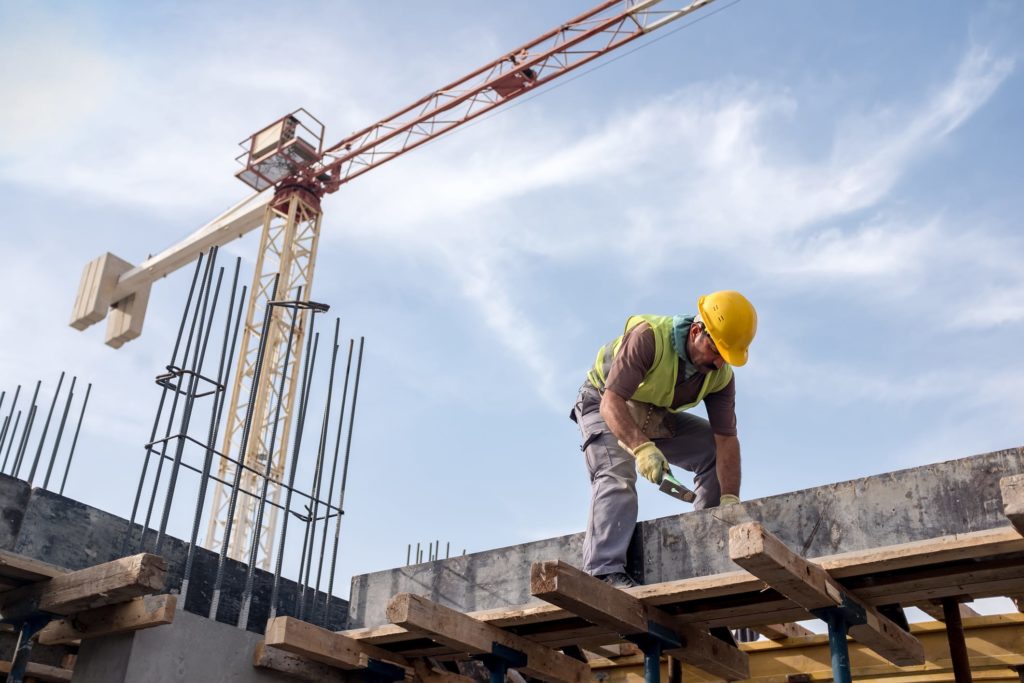
[vc_row][vc_column][vc_column_text]With so many scenarios going on during this pandemic, ensuring job site safety in the workplace is key. It’s vitally important to not only train employees, but have control measures in place that prevent the spread of infection.
There are multiple measures that can assist in ensuring job safety:
Training
According to the Centers for Disease Control (CDC), all employees should understand what a pandemic is; what types of activities or jobs that may put them at risk for exposure; options for working remotely, or sick policies; social distancing strategies; good hygiene and disinfection procedures; the types of PPE available and how to wear and use it; and how communications between management and employees will take place moving forward.
- Social distancing
Social distancing or maintaining a safe distance of 6 feet from others whenever they can is the first step in protecting employees and others. There should be restricted use of shared items and spaces.
- Cover coughs and sneezes
Coughing and sneezing in an elbow or shirt is recommended instead of releasing those particles into the air.
- Clean surfaces regularly
Surfaces should be cleaned on a consistent basis with antiseptic to ensure surfaces are not contaminated, especially in high-traffic areas. Training should also include which agents to use for disinfection, what type of protective equipment to use when cleaning, and how to properly dispose of the protective equipment and cleaning agents. These routine cleanings should continue once the business is fully operational.
- Encourage hand hygiene
Washing hands for 30 seconds or more on a consistent basis and using hand sanitizer whenever touching items or others can assist in preventing the spread of contamination.
- Wearing protective equipment
Keeping employees safe with protective equipment, especially when working in high-risk work settings is important. Employees should also understand that all surgical masks and PPE should be properly sanitized or disposed of after use.
- Sick employee procedures
Any employee who does not feel well should stay home. Additionally, daily routines which include employee health checks should be implemented and monitored. There should be a flexible time off policy in place, as well as protocols for remote work if warranted.
- Action Plan
An action plan should be in place to address any issues employees or management may have in the event of an infection spread. This includes emergency communication protocols, what to do if someone is infected, and who to notify.
[/vc_column_text][vc_column_text]
Other equipment
When working around biohazards, maintaining safe restroom facilities is crucial in keeping employees safe. The use of Brief Relief products has been instrumental in keeping working conditions sanitary. The use of a portable restroom with privacy screens can keep the spread of infection down, as there are no facilities to maintain. Workers in highly sensitive and contaminated situations should also use face shields whenever necessary to prevent particles from reaching their faces when working. Face shields, compared to face masks, don’t itch and people are less likely to rub their eyes, infect themselves, and infect others if the wearer is contagious. The overall objective is to save both time and money while keeping employees safe.
What is a portable restroom?
The Disposa-John Portable Restroom works with a commode to capture waste, break it down and convert it into a deodorized gel. This helps keep everyone safe while providing the services needed to keep essential operations going. For field workers and those who are in makeshift camps, this is a sterile, working alternative when there are no restroom facilities available. These solutions will also work well in establishments where more restroom facilities are needed due to new social distancing policies. There are training videos and other resources available on how best to use these products effectively while keeping employees safe.
Safety First
As businesses and other areas start to reopen, having tips and protocols posted throughout the area helps remind workers of the general guidelines for workplace safety. All federal, state, and local policies must also be considered when implementing these protocols. By following these guidelines and safety measures, employees will have the highest set of standards and protections in place.[/vc_column_text][/vc_column][/vc_row]
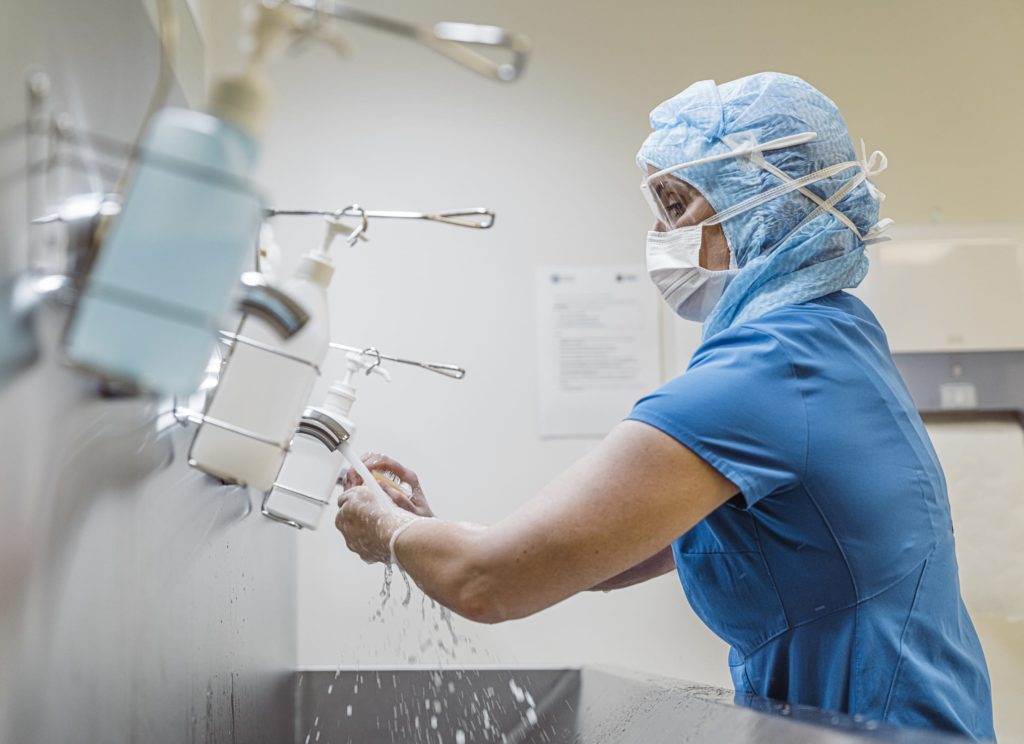
[vc_row][vc_column][vc_column_text]
It’s important for medical professionals to stay healthy and prevent the unwanted spread of illnesses throughout the year.
Regardless of the virus or bacteria that is causing illnesses across the country, medical professionals in hospitals, nursing homes, and rehabilitation centers are at the highest risk for contracting and spreading illnesses. As the first line of defense, these individuals must stay healthy in order to protect those who need their services.
The following 10 ways will help medical professionals prevent the spread of unwanted bacteria/viruses:
- Portable Toilet Waste Bags
- Face Shields
- Commode Systems
- Hand Sanitizer
- Privacy Shelters
- Heat Relief Towels
- Fluid Tactical Electrolyte Mixes
- Breaks for Mental Relief
- Proper Nutritious Meals
- Blackout Mask to Ensure Sleep
[/vc_column_text][vc_column_text]
Continue reading this blog post to learn more about how Brief Relief products keep those in medical facilities safe and healthy.
1. Portable Toilet Waste Bags
Brief Relief’s environmentally friendly products allows for liquid waste using our disposable waste bags. The Brief Relief Disposable Urinal Bag is our most popular product and instantly transforms urine into a deodorized gel. The special blend of polymers and enzymes allow human waste to be disposed of in normal trash cans.
The Disposa-John Portable Restroom will take care of any solid or liquid waste. This bag is a one-time use sanitary waste bag containment system that allows men and women to easily and hygienically answer nature’s call. When public bathrooms cannot be sanitized in between each use, these environmentally safe products allow all medical professionals the ability to go without worry of spreading germs. An antimicrobial wipe and toilet paper for extra sanitation is included for easy cleanup. These disposable waste bags for portable toilets can be combined with commode systems and privacy shelters to provide peace of mind.
2. Face Shields
The best way to prevent infection is to have the most vulnerable entry points protected. Face shields, similar to Tru-Form Plastics thermoforming manufacturing technology, is a great solution because they cover a larger surface area protecting the eyes, nose, and mouth, as well as help keep medical professionals from touching their face.
3. Commode Systems
Commode systems are practical replacements for traditional toilets because they allow for accessories that add typical bathroom comfort. Between risers and a toilet seat, those using a commode can almost feel like they are using a real toilet. These systems help prevent the spread of unwanted smells.
4. Hand Sanitizer
Rather than utilizing disposable hand wipes, hand sanitizer effectively kills bacteria and viruses. Stations throughout hospitals, rehabilitation centers, and nursing homes can prevent healthcare professionals from spreading illnesses. When paired with commode systems or other portable toilet options, hand sanitizer allows everyone peace of mind that their hands are clean.
5. Privacy Shelters
Men and women in the medical field do not need to be subjected to everyone watching their bathroom routine. Fortunately, Brief Relief privacy shelters allow individuals to have peace of mind while they use the restroom. With a lock, zipper, and thick material, these shelters provide complete privacy when used with any of Brief Relief’s portable toilets or waste bags.
6. Heat Relief Towels
Long shifts at rehabilitation facilities, nursing homes, hospitals, and other medical facilities can be labor intensive. Even when indoors, it is possible to heat the body to higher than normal temperatures. Heat relief towels ensure these professionals do not suffer from heat-related illnesses. Simply run them under water, and they are ready to use!
7. Fluid Tactical Electrolyte Mixes
Hydration is critical to remaining healthy in medical work environments. In addition to heat relief towels, fluid tactical electrolyte mixes replenish and replace vital electrolytes and key nutrients to hydrate individuals so they can continue to perform their essential duties.
8. Breaks for Mental Relief
Mental health is just as important as physical health. The strain of working in facilities that see pain, death, and despair daily can take a large mental toll. Medical professionals must walk away when it becomes too much in order to keep a sharp mind and remain healthy. When it feels like too much, ask for a break and clear the mind.
9. Proper Nutritious Meals
Medical professionals take on long, hard shifts. In order to keep going, proper nutrition is key. Whether visiting the cafeteria or bringing food from home, nutritious meals will keep medical professionals at hospitals healthy.
10. Blackout Eye Mask to Ensure Sleep
A profession in the medical field can mean overnight shifts on occasion. In order to achieve a healthy amount of sleep, utilize a blackout eye mask and blackout curtains. Eight hours of sleep are essential to perform the best at work.
Brief Relief is here to assist medical professionals in hospitals, nursing homes, and rehabilitation facilities year round. Our products can allow those working with sick patients the ability to safely and hygienically relieve themselves. With these waste bag containment systems and other environmentally friendly products, the spread of illnesses can be stopped. Contact us today for a quote or to place an order.
[/vc_column_text][/vc_column][/vc_row]
